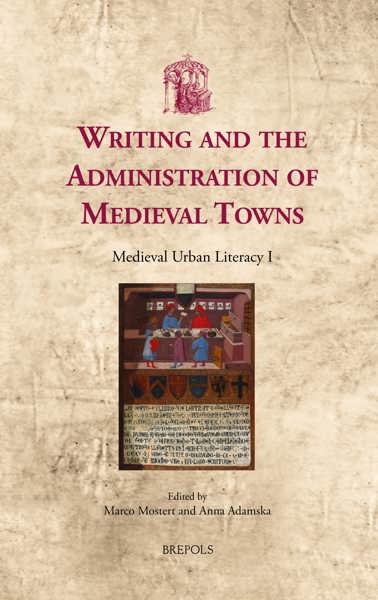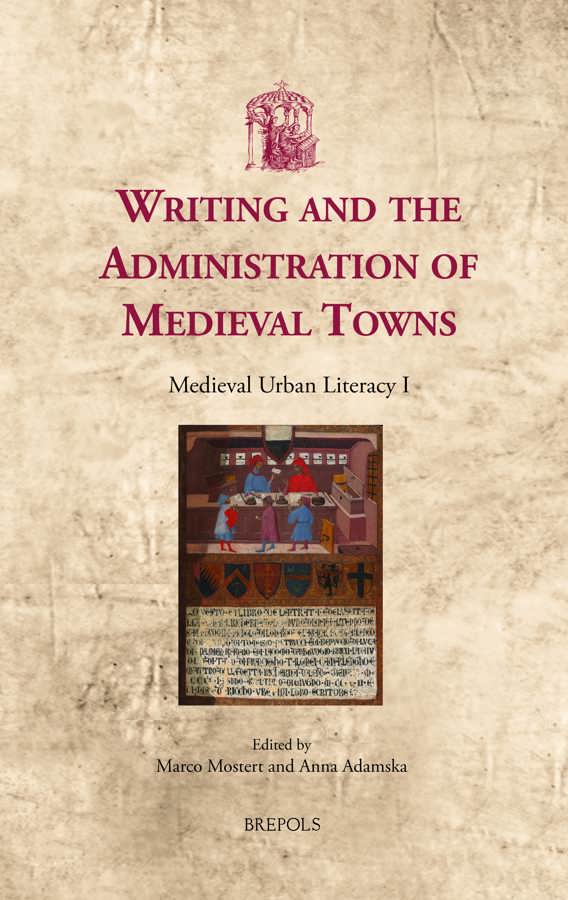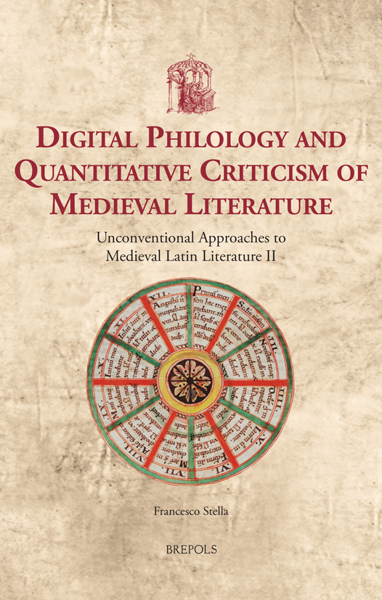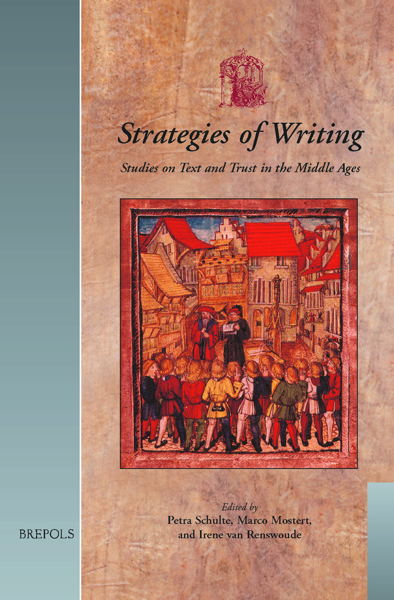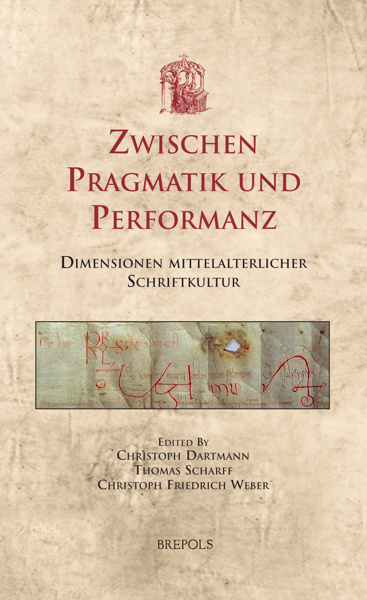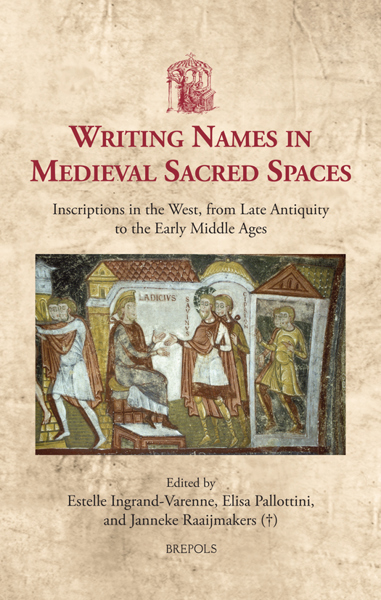
Writing and the Administration of Medieval Towns
Medieval Urban Literacy I
Marco Mostert, Anna Adamska (eds)
- Pages: xvi + 366 p.
- Size:156 x 234 mm
- Illustrations:26 b/w
- Language(s):English
- Publication Year:2014
- € 110,00 EXCL. VAT RETAIL PRICE
- ISBN: 978-2-503-54959-0
- Hardback
- Available
- € 110,00 EXCL. VAT RETAIL PRICE
- ISBN: 978-2-503-55007-7
- E-book
- Available
"Indeed, these two volumes represent a remarkable achievement, offering readers a sens of the state of the question regarding important aspects of urban literacy across a vast swath of Europe over a period of three centuries. These essays will be particularly helpful to specialists in medieval history who do not otherwise have access to scholarship in Dutch, Hungarian, and Polish, as well as the Scandinavian languages." (David Bachrach, in: The Medieval Review, January 2015, [15.01.02] - reviewed at the same time: Uses of the Written Word in Medieval Towns: Medieval Urban Literacy II, M. Mostert & A. Adamska (eds.), Brepols Publishers, ISBN 978-2-503-54960-6)
"Insgesamt gesehen ist der Charakter der vorgelegten Artikel und der präsentierten Regionen sehr verschieden. Die einzelnen in jeder Beziehung sehr heterogenen Artikel stehen nebeneinander, einige Autoren sprechen mitunter jedoch auch vergleichende Gesichtspunkte an. (...) Vertiefenswert sind u. a. die vergleichende Untersuchung von europaweit auftretenden Erscheinungen wie der Gewichtsverlagerung der städtischen Schriftlichkeit von überwiegend dem Klerus angehörenden »Experten« hin zu weltlichen Schreibern, Kanzleien und Notaren und die Entwicklung der unterschiedlichen Beglaubigungsmöglichkeiten." (Gisela Naegle, in: Francia Recensio, 2015/1)
"Several areas of contribution to scholarship stand out. Firstly, the very particularity of the contributions goes some way to helping the reader spot what is geographically or chronologically particular, and what is more commonly European. Secondly, this volume puts a wide range of research on European archives, towns, and literacy into English. Thirdly, the researchers present many methodological propositions that will have broader application beyond their own particular studies. Finally, there is an excellent and consistent focus on the surviving written word: its production, use, destruction, storage, survival, and how it has been and can be studied." (Nicolas Brodie, in: Parergon, 31.2, 2014, p. 199-200)
"Overall, this is a valuable collection of essays. It is not often one sees collections of conference presentations that are so thematically coherent. Further, many of the authors do a commendable job of summarizing their respective national historiographical debates, making much specialist literature available to a broader audience. For the reader not yet fluent in several European languages, such summaries offer welcome insights into otherwise inaccessible scholarship. For general readers, this volume provides an enriching overview of an important topic. For specialists, the pan-European focus offers new perspectives and points of comparison beyond one’s own terrain." (John Jordan, in: Urban History, 42.4, 2015, p. 691-692)
"Mehr als eine Skizze des unerschöpflichen Gesamtthemas kann auch der ganze Band mit seinen überwiegend instruktiven Fallstudien nicht sein, aber Skizzen sind eben da, um die Grundlage für Bilder zu schaffen. Gemeinsam mit dem eigens zu besprechenden zweiten Band zur „Medieval Urban Literacy“ sollte der eben vorgestellte zu einem Referenzpunkt künftiger Arbeiten werden." (Herwig Weigl, in: Mitteilungen des Instituts für Österreichischen Geschichtsforschung 124/1, 2016, p. 201-202)
« Par leur diversité géographique et méthodologique, ces deux volumes atteignent largement leur objectif et s’inscrivent parfaitement dans la série USML. » (Valeria Van Camp, dans Le Moyen Âge, 3-4, 2017, p. 683)
In medieval towns, written statements of law and administration appear more prevalent than in non-urban spaces. Certain urban milieus participating in written culture, however, have been the focus of more scholarship than others. Considering the variety among town dwellers, we may assume that literacy skills differed from one social group to another. This raises several questions: Did attitudes towards the written word result from an experience of the urban educational system? On which levels, and in which registers, did different groups of people have access to writing? The need and the usefulness of written texts may not have been the same for communities and for individuals. In this volume we concentrate on the institutional written records that were most indispensable to communal order, including collections of written law, charters of liberties, and municipal registers.
Preface Maps Introduction — MARCO MOSTERT and ANNA ADAMSKA
Part I: Varieties of Administrative Urban Literacy
Producing, Using, and Keeping Records in Medieval Swedish Towns — INGER LARSSON
The Use of Records in Medieval Towns: The Case of ’s-Hertogenbosch (Brabant) — GEERTRUI VAN SYNGHEL
The Use of Records in Medieval Towns: The Case of Bolzano, South Tyrol — HANNES OBERMAIR
Urban Chanceries in the Kingdom of Castile in the Late Middle Ages — JOSÉ MIGUEL LÓPEZ-VILLALBA
Urban Administrative Literacy in the Northeastern Low Countries: A Comparison of Groningen, Kampen, Deventer, and Zutphen, Twelfth-Fifteenth Centuries — JEROEN F. BENDERS
Towns and the Written Word in Medieval Hungary — KATALIN SZENDE
Urban Literacy in Small Polish Towns and the Process of ‘Modernisation’ of Society in the Later Middle Ages — AGNIESZKA BARTOSZEWICZ
Part II: Urban Archives: Places of Power, Memory, and Secrets
Writing and Social Evidence ‘Before the Archives’: Revealing and Concealing the Written in Late Medieval Lüneburg — ANDREAS LITSCHEL
The Political Implications of Urban Archival Documents in the Late Medieval Flemish Cities: The Example of the Diary of Ghent — HANNES LOWAGIE
Civic Literacy in Later Medieval England — SARAH REES JONES
Urban Literacy and Urban Secrecy? Some New Approaches to an Old Problem — MICHAEL JUCKER
Trust, Secrecy, and Control in the Medieval Italian Communes — CHRISTOPH FRIEDRICH WEBER
A Technique to Ensure Safety: The cedulae inclusae of Strasbourg, Berne, and Basel during the Burgundian Wars (1468-1477) — BASTIAN WALTER
Part III: Litterati in Town: Notaries, Schoolmasters, and Schoolboys
The Professsional Formation of Public Notaries in Dalmatia from the Second Half of the Twelfth Century to the End of the Fourteenth Century — BRANKA GRBAVAC
“Laborem circumspecti domini notarii”: Town Notaries in Early Modern Transylvania — ÁGNES FLÓRA
Some Thoughts on Urban Schools, Urban Literacy, and the Development of Western Civilisation — MARCO MOSTERT
Index
